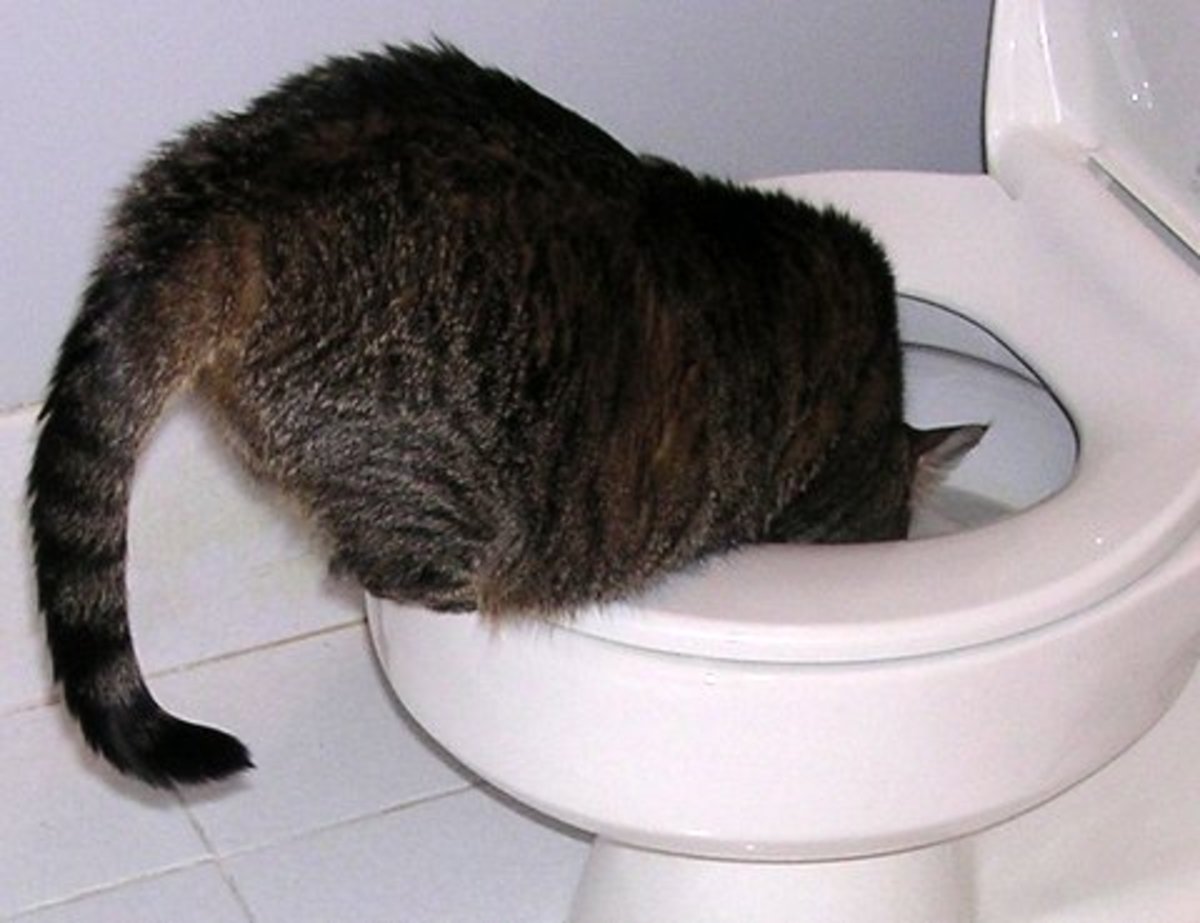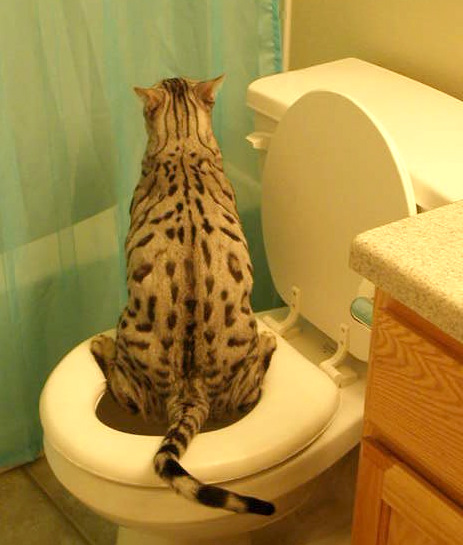An Outcomes of Flushing Animal Waste Down the Toilet
An Outcomes of Flushing Animal Waste Down the Toilet
Blog Article
Listed here down the page you will discover a lot of awesome resources around Don't Flush Your Pets Poo Down The Loo, Vet Warns.

When it concerns disposing of waste, specifically animal waste, many people usually turn to the convenient option of flushing it down the commode. Nonetheless, this relatively very easy service can have significant consequences for the atmosphere and public health. In this article, we'll discover why flushing animal waste down the commode is a bad idea and give alternative approaches for proper disposal.
Intro
Appropriate waste disposal is important for preserving environmental sustainability and public health. While it may seem safe to flush animal waste down the toilet, it can lead to various concerns, both for the setting and human well-being.
Dangers of flushing pet waste
Environmental effect
Flushing pet waste introduces unsafe bacteria and virus into waterways, which can adversely impact marine ecological communities. These virus can infect water resources and damage marine life, disrupting fragile ecological communities.
Public health worries
Animal waste has unsafe germs such as E. coli and Salmonella, which can position serious wellness risks to human beings. Flushing pet waste down the toilet can pollute water products, bring about the spread of illness and infections.
Alternatives to flushing
Instead of purging animal waste down the commode, there are several different disposal techniques that are a lot more environmentally friendly and sanitary.
Composting
Composting animal waste is an environmentally friendly way to throw away it. By composting, raw material is broken down into nutrient-rich dirt, which can be made use of to feed gardens and plants.
Garbage dump disposal
Taking care of pet waste in a land fill is an additional alternative. While not as environmentally friendly as composting, it is a much safer choice to flushing, as it prevents the contamination of water sources.
Pet dog waste disposal systems
There are specific family pet garbage disposal systems offered that securely and hygienically take care of pet waste. These systems commonly make use of enzymes to break down waste and get rid of smells.
Actions to correct pet waste disposal
To make certain proper disposal of animal waste, comply with these steps:
Scooping and bagging waste
On a regular basis scoop and bag pet waste making use of naturally degradable bags. This avoids waste from contaminating the environment.
Making use of assigned waste bins
Dispose of bagged animal waste in marked waste bins, such as compost bins or landfill containers. Prevent flushing it down the commode in any way costs.
Cleaning litter boxes and pet locations routinely
Frequently clean litter boxes and pet dog areas here to avoid the accumulation of waste and microorganisms. Use pet-safe cleaning items to keep hygiene.
Benefits of appropriate disposal methods
Embracing appropriate disposal techniques for pet waste supplies numerous benefits:
Reduced environmental pollution
Appropriate disposal approaches decrease the risk of environmental pollution, securing waterways and ecological communities from contamination
Reduced risk of water contamination.
By avoiding flushing animal waste down the toilet, the danger of water contamination is significantly reduced, safeguarding public health.
Improved hygiene and hygiene
Proper disposal approaches promote far better sanitation and health, creating a safer environment for both human beings and animals.
Final thought
In conclusion, purging pet waste down the commode is dangerous to the setting and public health. By embracing alternate disposal techniques and adhering to appropriate waste monitoring practices, we can decrease the negative influence of animal waste and contribute to a cleaner, healthier world.
What To Do With Dog Poo – The Do's And Don'ts Of Disposing Of Faeces
Dog poo bins
Some councils provide dedicated dog waste bins in popular dog-walking areas that can take dog poo that has been bagged but you can legally dispose of dog waste in any public litter bin, as long as it is securely bagged. This also applies to your wheelie bin at home.
Do not flush
Water companies do not recommend flushing dog faeces down the toilet because certain parasites can survive the water processing treatment and are potentially harmful to humans. You should also never consider flushing dog poo that has been bagged down the toilet as the bags will not break down and instead create severe blockages in the sewage system.
In the woods
The Forestry Commission promotes a ‘stick and flick’ method for dealing with waste in the woods. This means finding a stick and using it to flick any poo from off the path so that it is out of the way of other walkers. You could also bury it as long as it is not in an area where there might be livestock.
Livestock
Parasites found in dog poo can be transmitted to livestock if they inadvertently eat infected faeces that has been left on grazing land. This could result in the death of sheep or abortion in cattle so you should always make sure you pick up your dog’s waste in fields where livestock could be present.

Frequently clean litter boxes and pet dog areas here to avoid the accumulation of waste and microorganisms. Use pet-safe cleaning items to keep hygiene.
Benefits of appropriate disposal methods
Embracing appropriate disposal techniques for pet waste supplies numerous benefits:
Reduced environmental pollution
Appropriate disposal approaches decrease the risk of environmental pollution, securing waterways and ecological communities from contamination
Reduced risk of water contamination.
By avoiding flushing animal waste down the toilet, the danger of water contamination is significantly reduced, safeguarding public health.
Improved hygiene and hygiene
Proper disposal approaches promote far better sanitation and health, creating a safer environment for both human beings and animals.
Final thought
In conclusion, purging pet waste down the commode is dangerous to the setting and public health. By embracing alternate disposal techniques and adhering to appropriate waste monitoring practices, we can decrease the negative influence of animal waste and contribute to a cleaner, healthier world.
What To Do With Dog Poo – The Do's And Don'ts Of Disposing Of Faeces
Dog poo bins
Some councils provide dedicated dog waste bins in popular dog-walking areas that can take dog poo that has been bagged but you can legally dispose of dog waste in any public litter bin, as long as it is securely bagged. This also applies to your wheelie bin at home.
Do not flush
Water companies do not recommend flushing dog faeces down the toilet because certain parasites can survive the water processing treatment and are potentially harmful to humans. You should also never consider flushing dog poo that has been bagged down the toilet as the bags will not break down and instead create severe blockages in the sewage system.
In the woods
The Forestry Commission promotes a ‘stick and flick’ method for dealing with waste in the woods. This means finding a stick and using it to flick any poo from off the path so that it is out of the way of other walkers. You could also bury it as long as it is not in an area where there might be livestock.
Livestock
Parasites found in dog poo can be transmitted to livestock if they inadvertently eat infected faeces that has been left on grazing land. This could result in the death of sheep or abortion in cattle so you should always make sure you pick up your dog’s waste in fields where livestock could be present.

I'm certainly very enthusiastic about 10 Things You Should Never Flush Down The Toilet and I hope you appreciated my piece. Sharing is caring. Helping people is fun. Kudos for your time. Come back soon.
Click For More Info Report this page